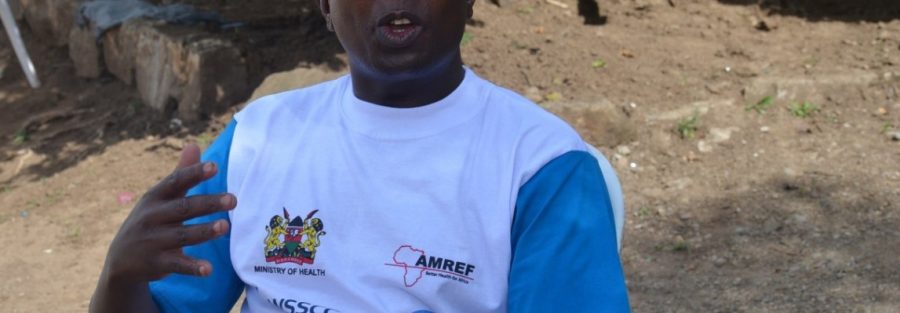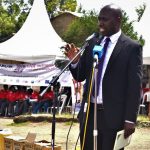They did not call it “The Golden Rule” for nothing. According to Samuel Kariuki, one of those designated as Natural Leaders in the pursuit of making the whole of Naivasha sub-County open-defecation free (ODF), the enormity of “Love your neighbour as yourself” as spoken by Jesus Christ in Luke 10:27 crept upon him in the course of his work, to his great surprise.
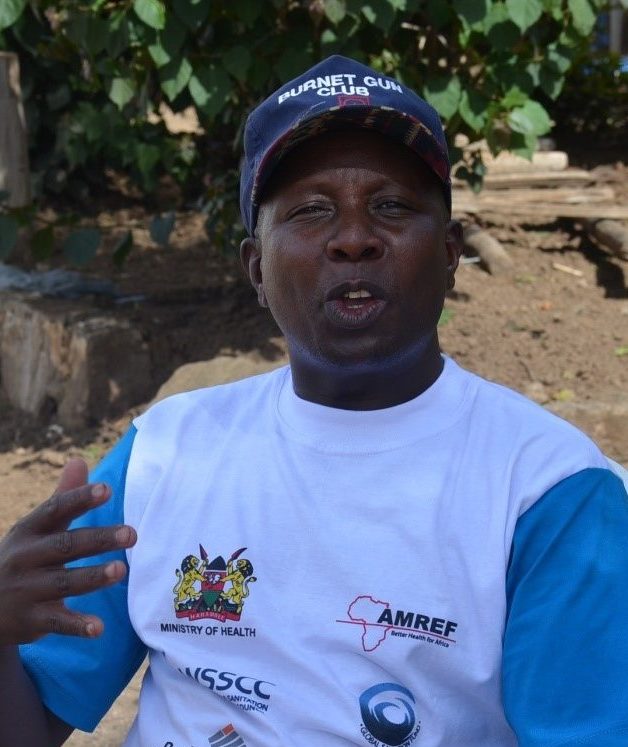
To begin with, a natural leader is a person who emerges from a group of people to show leadership, find solutions and keep morale high during a challenge. He is not appointed. Kariuki’s work involves going around the numerous and diverse villages of Naivasha preaching, as he calls it, the gospel of defecating in toilets rather than in the open. This is under the Kenya Sanitation and Hygiene Improvement Programme (K-SHIP). On November 17, 2017, sixty-six villages around Naivasha were celebrating the achievement of ODF status and Kariuki’s Turi village was among them. It was a moment of pride for the hard-working family man who sacrifices immensely to upgrade the lives of co-citizens.
Kariuki’s Turi village is in Biashara Ward in a breathtakingly beautiful part of Naivasha called Highland. A man with a magnanimous smile and a warm handshake, Kariuki says he has been surprised by how much satisfaction he has gained from his voluntary work as a natural leader. The work is hard, a labour of love actually but, to paraphrase Britain’s war leader Winston Churchill, “never did so hard a job with so little material return bring so much fulfilment.”
“The job has been good but not devoid of challenges,” he says. “I start off very early in the morning to reach as many households as possible. On rainy days like now, it is double hard because I have long distances to cover and no public service vehicles to use. Ordinarily, I use boda boda but on rainy days, even the boda bodas cannot make it up the muddy hills. This means setting out on foot in muddy conditions at dawn.”
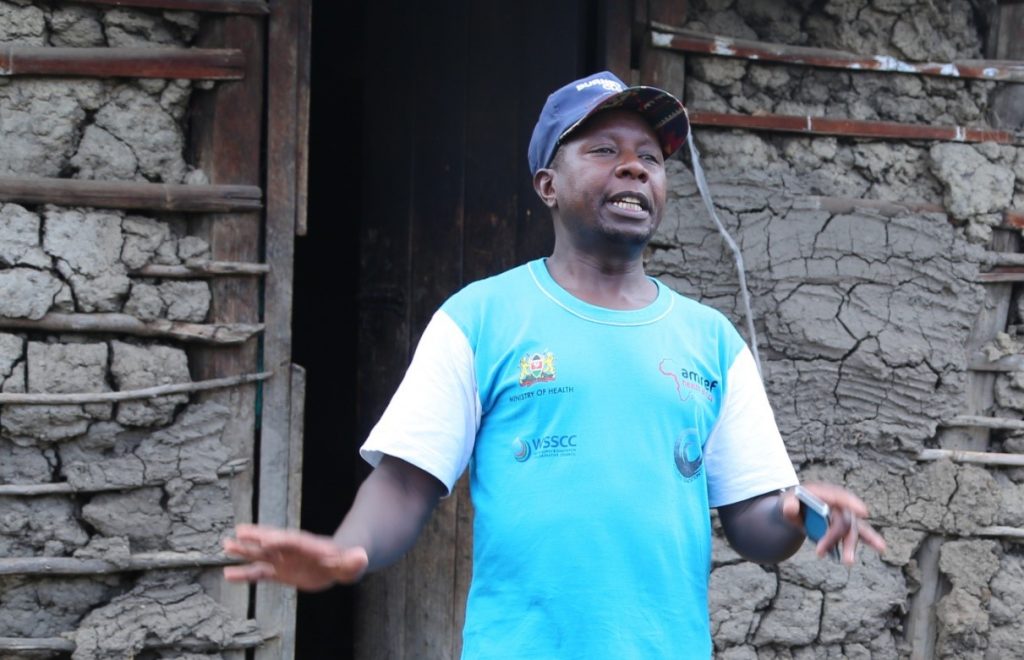
The distances he has to cover are great and walking can be taxing in extreme weather conditions. The households are not clustered together. Rather, they are scattered all over the landscape. And yet he says he is grateful to be part of this small revolution adding health to lives of his people in Naivasha. “I’m honoured to be part of the team that gets the villages to achieve ODF-status and improve their health and their children’s.”
Kariuki believes the villages they cover have a combined population of about 800,000 people. He says the job of changing people’s behaviour is not always welcome. At times, those he targets are violently opposed to the new ideas. “At times nobody wants to listen or converse with you. They turn their backs on you, they don’t want to see, let alone converse with you. But we humble ourselves and persist. Eventually they began to lend us a little bit of their time.”
It is when defences are lowered, when people began to give him a listening ear, that the sense of fulfilment and achievement descends on him. He says the information he and his colleagues carry is important and attractive. “I realise that if I can get them to listen, they are likely to embrace the ideas I bring. For instance, when I mention how much savings in financial expenditure they make by defecating in a hygienic manner, and compare it with what they ordinarily spend in healthcare as a result of Open Defecation (OD), they look at me in surprised realisation and begin to value the message.”
Kariuki says the most help they have received has been from the Centre for Behaviour Change Communications (CBCC). Local administration, especially the village chiefs, have been vital in prying open closed doors. “To successfully and easily mobilize the people, you have to involve the chief. People have deep respect for the chief and listen to his/her voice. It lubricates your path.” Like a good preacher, Kariuki and his colleagues do not just preach and disappear: they return regularly to ascertain that the convert stays the path of good behaviour.
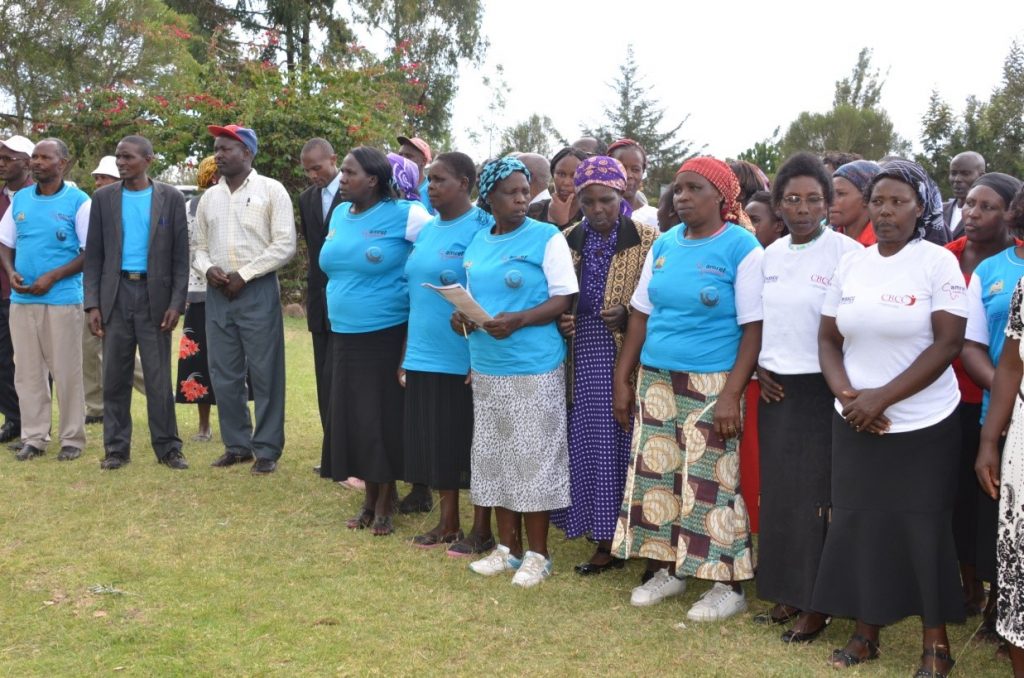
“We went to the informal settlements and worked very hard in spreading the gospel of toilets in those areas,” he explains. “At first, they didn’t know to cover the toilets, assuming that all we wanted from them was to build one. This was a misconception of which we had to disabuse them. They did not even take seriously the need for a hand-washing point. In light of this, we had to go back and share the in-depth details of this gospel. Once they understood and we verified that indeed there were signs of behaviour change, we gave them time to get used to this transformed lifestyle. This period gives us time to know who is backsliding and who is progressing.”
Only when a village has no backslider is it declared ODF. Then the celebrations are organised. “As a natural leader, my work is never done. I have to go back to them regularly to make sure they don’t tire or fall back into old practices. And this thing has changed me at a very personal level,” says Kariuki by way of concluding. He attributes being a natural leader to a gift from God and something that cannot successfully be carried out unless one was passionate about it. “It has been a labour of love but it has grown and developed me immensely.”
Then he delivers the parting shot that anyone from anywhere in the world can take home: “I have learnt to relate better with people, to work harder at relationships, and to develop and clarify the objectives of any pursuit. The hard work it may demand is easily justifiable and easier to harness when the end goal is clear. So I offer myself in sacrifice to work hard for the salvation of my people. It will change their destiny and give our children a better future.”

